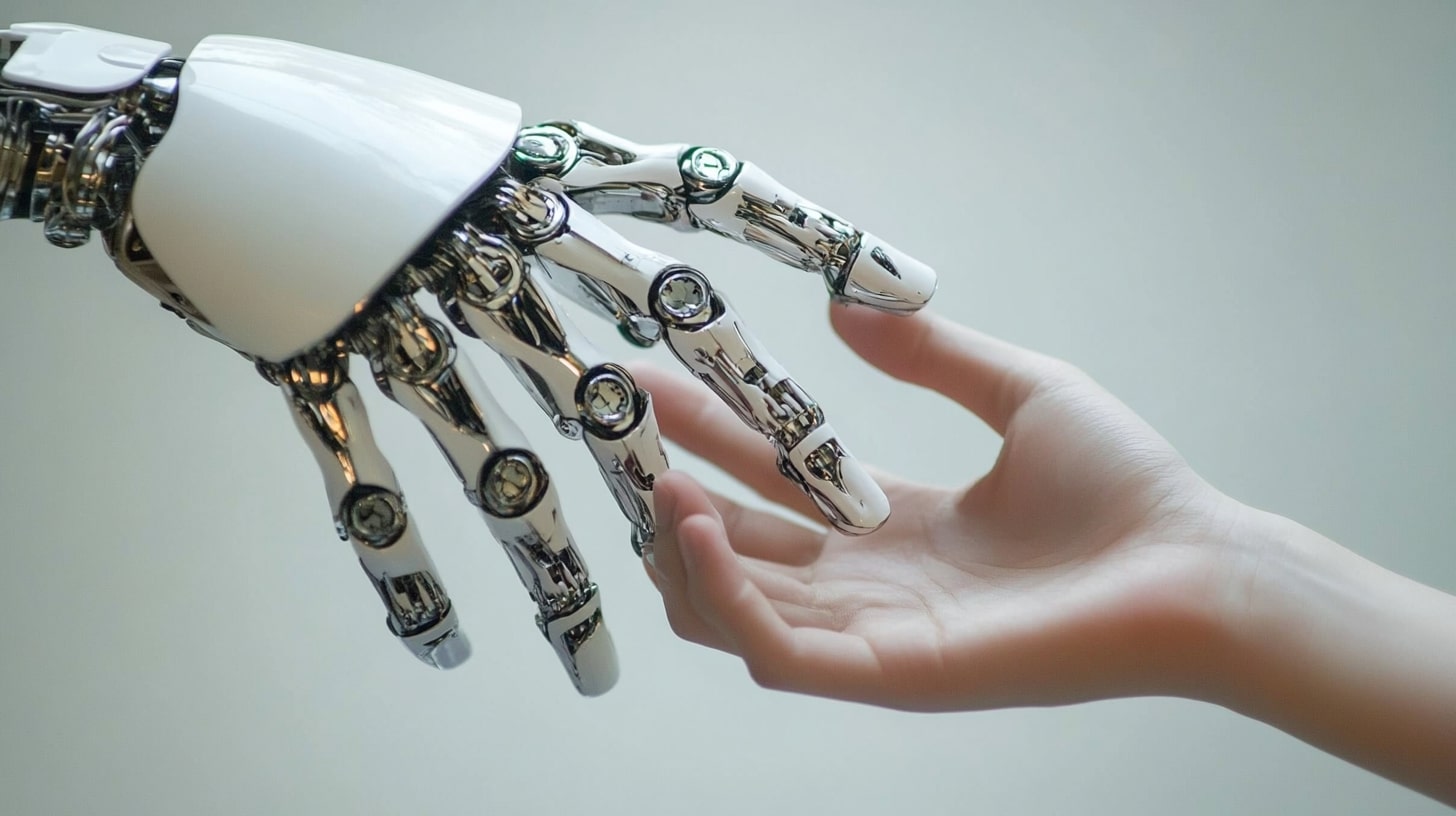Streamlining HR Processes with Advanced Automation

Employees are the most critical asset of any business. Unfortunately, in most companies, HR management is still very fragmented. Optimizing internal HR processes will help improve the quality of personnel management. This is one of the best achievements in modern technology. It generated a lot of excitement. Automation enhances the quality of employee productivity monitoring and cost savings. This synergy between automation and HR offers a multitude of benefits. Among them is accelerating the recruitment process through automated resume screening. Also, advantages include candidate evaluation. It enhances employee engagement through personalized training programs powered by AI algorithms.
These innovations streamline routine administrative tasks. Among them are payroll processing and performance evaluations. Such innovations enable HR professionals to make decisions. They are data-driven for talent management and organizational development. We explore the transformative impact of automation and AI technologies on HR processes. Also, we explain how these innovations bolster efficiency and streamline operations.
The Evolution of Automation in HR
The evolution of automation in HR marks a significant shift. It concerns how organizations manage their workforce and streamline administrative processes. Here's a breakdown of critical transformations:
- Recruitment and Onboarding: Automation tools have revolutionized candidate sourcing and screening. Applicant tracking systems (ATS) efficiently filter resumes. This is while automated onboarding workflows streamline paperwork and orientation processes.
- Training and Development: AI-driven learning platforms and virtual simulations replace traditional training methods. These tools personalize training programs and track employee progress. Also, they identify skill gaps for targeted development initiatives.
- Performance Management: Automated performance appraisal systems provide real-time feedback. Also, they offer goal tracking and performance analytics. This shift from annual reviews to continuous feedback improves employee engagement. Also, it enhances performance outcomes. HR and automation are instrumental in enabling this transition. They allow for timely assessments and personalized development plans. They are generally tailored to individual employee needs.
- Payroll and Benefits Administration: Automation simplifies payroll processing, tax calculations, and benefits enrollment. HRIS (Human Resource Information Systems) integrates with payroll software. It helps them ensure accuracy and compliance, reducing manual errors and administrative overhead.
- Data Analytics and Insights: Automation enables HR to harness big data. They are vital for workforce planning, and strategic decision-making. AI algorithms identify trends and forecast future staffing needs. They optimize resource allocation for maximum efficiency.
- Compliance and Risk Management: Automated compliance tools monitor regulatory changes. They ensure policy adherence and mitigate legal risks. Alerts and notifications keep HR informed of compliance deadlines and requirements. They reduce the likelihood of costly penalties.
- Employee Self-Service: These portals empower employees to manage their HR tasks independently. They update personal information, access pay stubs, and request time off. This reduces HR's administrative burden and enhances employee satisfaction. The automation process for HR is crucial in enabling such self-service functionalities. It streamlines routine tasks. This process empowers employees to take ownership of their HR-related activities.
- Employee Engagement and Wellness: Automation extends to employee engagement initiatives. They are pulse surveys, sentiment analysis, and wellness programs. AI-powered chatbots provide instant support for HR inquiries and support mental health initiatives.
Integrating automation and HR represents a paradigm shift towards agility, accuracy, and employee-centricity. Embracing these modern technologies is vital. So organizations can optimize their HR functions and drive business growth. Also, they may cultivate a culture of continuous improvement.
Automated Recruitment Systems
These systems represent a transformative shift. It offers unprecedented efficiency, accuracy, and scalability in the recruitment process. Check out the information below:
| Aspect | Impact |
|---|---|
| Sourcing | Automated recruitment systems use AI algorithms to scan vast candidate pools. They also help to save time and effort in manual search processes. Automated job board postings ensure broader reach and increased visibility for job openings. |
| Screening | HR automation significantly enhances efficiency by automating resume screening and pre-qualification assessments. AI-driven screening tools analyze candidate qualifications, skills, and experiences. They identify top candidates based on predefined criteria. This reduces the time-to-hire and improves the quality of shortlisted candidates. |
| Candidate Matching | AI-driven algorithms evaluate candidate profiles against job requirements. They facilitate more accurate and targeted matches. This reduces the likelihood of mismatches and improves the overall quality of hires. |
| Communication and Engagement | Automated communication tools streamline candidate engagement. They do it through personalized emails, chatbots, and scheduling assistants. This ensures timely and consistent communication with candidates. It enhances their experience and employer brand. |
| Data Analytics and Reporting | HR automation platforms provide comprehensive data analytics and reporting functionalities. It enables recruiters to track recruitment metrics and analyze hiring trends. This data-driven approach enhances decision-making. It facilitates continuous improvement in recruitment processes. |
| Compliance and Bias Mitigation | Automated recruitment systems incorporate features. They mitigate bias and ensure compliance with equal employment opportunity (EEO) regulations. AI algorithms help identify and eliminate biased language in job descriptions. They assess candidates based on objective criteria. It promotes fairness and diversity in hiring. |
Leveraging AI-driven technologies, organizations can streamline sourcing and screening. Also, they may have hiring processes. It ultimately enhances their ability to attract top talent and drive business success.
Enhancing Employee Onboarding
Automation is vital in transforming the HR process for automated employee onboarding. It ensures a seamless and efficient experience for new hires. Here's how it revolutionizes the onboarding journey:
| Key Aspects | Description |
|---|---|
| Speed | Automated onboarding systems expedite the process. They automate paperwork, document verification, and task assignments. New hires can swiftly complete necessary forms and training modules. It reduces time-to-productivity and minimizes delays in starting their roles. |
| Compliance | Automated onboarding ensures adherence to regulatory requirements and company policies. These systems mitigate risks by generating standardized documents. They facilitate electronic signatures and tracking compliance tasks. It ensures consistency across all onboarding processes. |
| Employee Experience | Automated onboarding enhances the employee experience. It provides a personalized and engaging welcome process. Customized welcome messages and interactive orientation materials foster a positive impression. They facilitate faster integration into the company culture. |
Leveraging HR and automation in the onboarding process yields numerous benefits. They include accelerated onboarding timelines and enhanced compliance management. Also, among the advantages is generally improved employee satisfaction. It ultimately contributes to higher retention rates and better overall organizational performance.
Automation in Employee Data Management

Automation in employee data management is pivotal for maintaining data accuracy. It ensures compliance and enhances the automated HR experience. Here are vital aspects:
- Data Security and Compliance: Automated systems utilize robust encryption protocols. They access controls to safeguard sensitive employee information. Such systems also facilitate compliance with privacy regulations. They are GDPR and CCPA by automatically managing data retention periods. Also, automated systems process consent requests.
- Efficient Data Processing: AI and automation in HR streamline data entry and updating processes. It reduces manual errors and minimizes data discrepancies. This enhances data accuracy and reliability while saving time for HR professionals.
- Accessibility and Reporting: HR Information Systems (HRIS) provide a database storing employee data. It enables easy access and retrieval of information when needed. Automated reporting features generate customized reports on various HR metrics. They empower decision-making and strategic planning.
- Enhanced Analytics: Automated systems leverage AI algorithms to analyze vast employee data. They uncover valuable insights into workforce trends, performance patterns, and retention drivers. This data-driven approach enables proactive decision-making and fosters a culture of continuous improvement.
Integrating AI and automation in HR into employee data management processes is crucial. It makes significant changes. So organizations can optimize efficiency and ensure compliance. Also, they may unlock the full potential of their workforce data for strategic decision-making.
Optimizing HR Services with AI
AI is revolutionizing HR services and driving efficiencies. Also, it enhances the automated HR experience across various functions. Here's a closer look at its impact:
- Benefits Administration: AI-powered chatbots streamline benefits enrollment processes. They guide employees through plan selections, explaining coverage options. Also, bots answer queries in real-time. These virtual assistants enhance employee understanding of benefits packages. This is while reducing the administrative burden on HR teams.
- Employee Support: AI-driven helpdesk solutions guide employees for common HR inquiries. They are policy clarification, leave requests, and payroll issues. Natural language processing (NLP) algorithms enable chatbots to understand and respond to queries. It improves responsiveness and satisfaction.
We prepare examples of AI applications transforming HR operations for you. They include:
- Predictive Analytics: AI algorithms analyze historical data. They forecast future employee turnover, performance, and engagement trends. This proactive approach enables HR to implement preemptive measures. They retain top talent and optimize workforce planning.
- Document Automation for Human Resources: These AI-powered tools streamline HR document management. They are offer letters, contracts, and performance evaluations. These systems automate repetitive tasks and ensure document accuracy. Also, they improve compliance with organizational policies and regulations.
- Resume Screening: AI-powered applicant tracking systems (ATS) automate resume screening processes. They scan for keywords, qualifications, and relevant experience. By filtering out unqualified candidates, ATS platforms save time and resources. It allows HR to focus on engaging with top talent.
AI is reshaping HR service automation by streamlining processes and enhancing employee experiences. Also, it enables data-driven decision-making in HR functions. Organizations embrace these advancements. They unlock new opportunities to optimize HR services and drive business success.
Future Trends in HR Automation
The area of HR continues to evolve. The future trends in HR service automation will reshape traditional practices. Emerging AI and machine learning (ML) will drive these developments. Here's what to expect:
- AI-Powered Recruitment: AI algorithms will continue revolutionizing recruitment. They automate candidate sourcing, screening, and selection. Predictive analytics and NLP will enable HR professionals to identify top talent. Also, it'll help to enhance the candidate experience.
- Virtual HR Assistants: They will become more prevalent. Such agents offer employees seamless access to HR services and information. These virtual assistants will handle routine inquiries and process requests. They'll guide HR policies and procedures, improving employee satisfaction and HR efficiency.
- Document Automation for Human Resources: Adopting these tools will streamline administrative tasks. They are responsible for contract generation and employee record management. This will enhance accuracy, reduce manual errors, and improve regulation compliance.
- Blockchain for HR Data Security: This technology will enhance these aspects. Blockchain will store sensitive information in tamper-proof, decentralized ledgers. It will protect against data breaches and unauthorized access. This ensures compliance with privacy regulations.
- Emphasis on Employee Experience: HR service automation will prioritize enhancing the employee experience. It'll do it through personalized interactions, self-service portals, and AI-driven support systems. Organizations can create a positive work environment that fosters employee engagement and loyalty. They'll automate routine tasks and provide seamless access to HR services.
Sophisticated technologies will increasingly characterize the future. They drive effectiveness and agility in managing the workforce.


